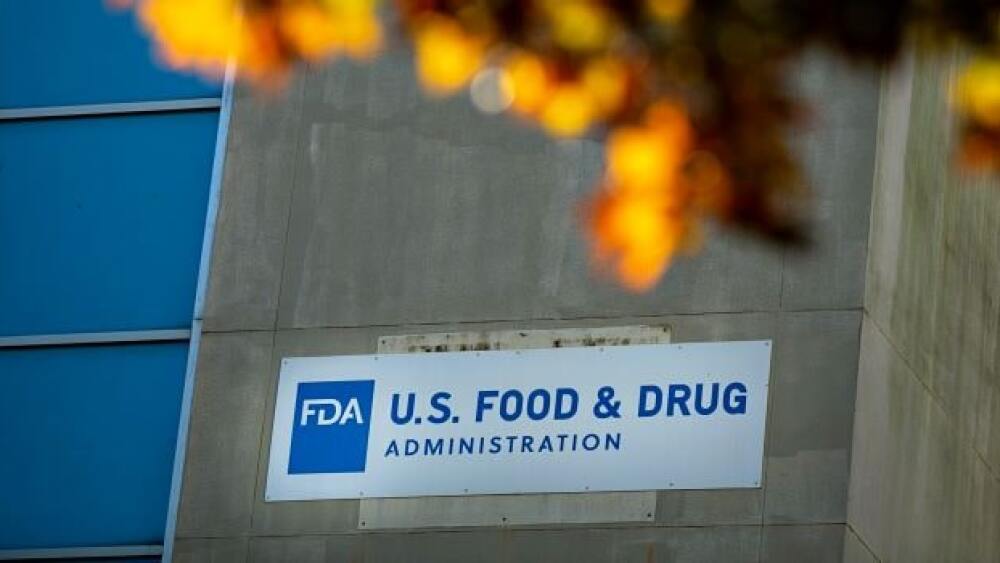The U.S. FDA’s Oncologic Drugs Advisory Committee is holding a meeting on April 21, 2022, to discuss safety findings across the entire class of PI3K inhibitors for hematological cancers.
Courtesy of Jason Armond/LA Times via Getty Images
The U.S. Food and Drug Administration’s Oncologic Drugs Advisory Committee is holding a meeting on April 21, 2022, to discuss safety findings across the entire class of PI3K inhibitors for hematological cancers. Dysregulated PI3K signaling helps malignant lymphocytes survive and proliferate. The FDA is essentially asking the advisory committee to make a recommendation on whether future approvals for this class of drug should be based on randomized data instead of single-arm clinical trials.
As the FDA’s Richard Pazdur, Nicholas Richardson, Yvette Kasamon and Nicole Gormley of the Division of Hematologic Malignancies 2 wrote in Lancet Oncology, “The development programs of the PI3K inhibitors in haematological malignancies highlight challenges associated with the current paradigm of using overall response rates in single-arm trials to support accelerated approvals. Generally, limited dose-exploration studies were conducted before choosing maximum or near-maximum tolerated doses for subsequent single-arm trials for accelerated approval.”
Currently, there are four PI3K inhibitors approved by the FDA under this context. They are Gilead Sciences’ Zydelig (idelalisib), Bayer’s copanlisib, Secura Bio’s develisib, and TG Therapeutics’ umbralisib. A fifth drug, alpelisib, a PI3K alpha-specific inhibitor approved for breast cancer and PIK3CA-related overgrowth spectrum, will not be included in the discussion.
Gilead’s Zydelig is approved for relapsed chronic lymphocytic leukemia (CLL), in combination with rituximab, in patients for whom rituximab alone would be considered appropriate therapy due to other comorbidities. Gilead has since withdrawn the drug from the market for certain types of cancer after failing to complete follow-up clinical trials to confirm efficacy and safety.
The drug comes with a boxed warning for fatal and serious toxicities, including hepatic toxicities, severe diarrhea, colitis, pneumonitis, infections, and intestinal perforation. Hepatotoxicity occurred in 16% of patients. Rituximab is marketed by Genentech and Biogen as Rituxan.
Bayer’s Aliqopa (copanlisib) is indicated for adults with relapsed follicular lymphoma (FL) who have received at least two previous systemic therapies. The drug comes with a warning that 19% of patients receiving the drug alone were at risk of serious, including fatal, infections. The most common infection was pneumonia.
Secura’s Copiktra (duvelisib) is approved for chronic lymphocytic leukemia (CLL) or small lymphocytic lymphoma (SLL) patients who have received at least two previous therapies that did not work or were no longer working. It comes with a safety warning that 31% of patients receiving the drug had fatal and/or serious infections. Fatal and/or serious diarrhea or colitis occurred in 18%, fatal and/or serious cutaneous reactions occurred in 5% and fatal and/or serious pneumonitis occurred in 5%.
TG’s Ukoniq (umbralisib) is indicated for relapsed or refractory marginal zone lymphoma (MZL) patients who have received at least one previous anti-CD20-based therapy and relapsed or refractory follicular lymphoma who have received at least three previous lines of systemic therapy. On Feb. 3, 2022, the FDA published a warning that it was “investigating a possible increased risk of death with the cancer medicine Ukoniq (umbralisib)…. The FDA determined that initial findings from a clinical trial evaluating Ukoniq to treat a related type of cancer found a possible increased risk of death in patients taking the medicine.”
Alpelisib is Novartis’ Piqray, which is indicated in combination with fulvestrant for postmenopausal women, and men, with hormone receptor (HER)-positive, human epidermal growth factor receptor 2 (HER2)-negative, PIK3CA-mutated, advanced or metastatic breast cancer. It is not part of the advisory committee’s evaluation.
One of the things about this particular advisory committee meeting is that the companies will not be making arguments in support of their drugs, which is the case for more advisory committee meetings. As The Cancer Letter notes, “The agency wants the world to know about potential decrements in overall survival that have been observed in six post-marketing randomized controlled trials of phosphoinositide 3-kinase (PI3K) inhibitors in indolent NHL or CLL.”
All of the drugs have shown durable overall response rates or improvements in progression-free survival. However, the side effects are serious and potentially deadly.
Richard Pazdur, director of the FDA Oncology Center of Excellence, told The Cancer Letter, “This is a forward-thinking discussion of how these products should be developed, based on what has been observed so far, and will focus on four major issues.”
The committee was to discuss a supplemental New Drug Application (sNDA) for Ukoniq and a Biologics License Application (BLA) for TG’s ublituximab. However, on April 15, TG voluntarily withdrew the BLA/sNDA for the combination of ublituximab and Ukoniq based on overall survival (OS) data from the Unity-CLL Phase III trial. It was also withdrawing Ukoniq for MZL and FL.
At the time, Michael S. Weiss, chairman and CEO of TG, said, “We were very disappointed to see that the recently updated overall survival data showed an increasing survival imbalance in favor of the control arm. Accordingly, we and our advisors determined that we should withdraw the BLA/sNDA for U2 in CLL. Additionally, we made the difficult decision to withdraw Ukoniq from sale for the approved indications in MZL/FL. We want to thank the patients, families and practitioners who worked with us in our search for novel treatment options for patients with B-cell malignancies.”
The FDA is proposing three changes for the advisory committee to consider. First, they push for careful dose selection by way of thorough dose exploration through early randomized trials. Secondly, they advise companies to avoid single-arm trials as regulatory strategies. And third, fully collect and analyze overall survival data to evaluate how the drug affects the “ultimate safety endpoint.”





